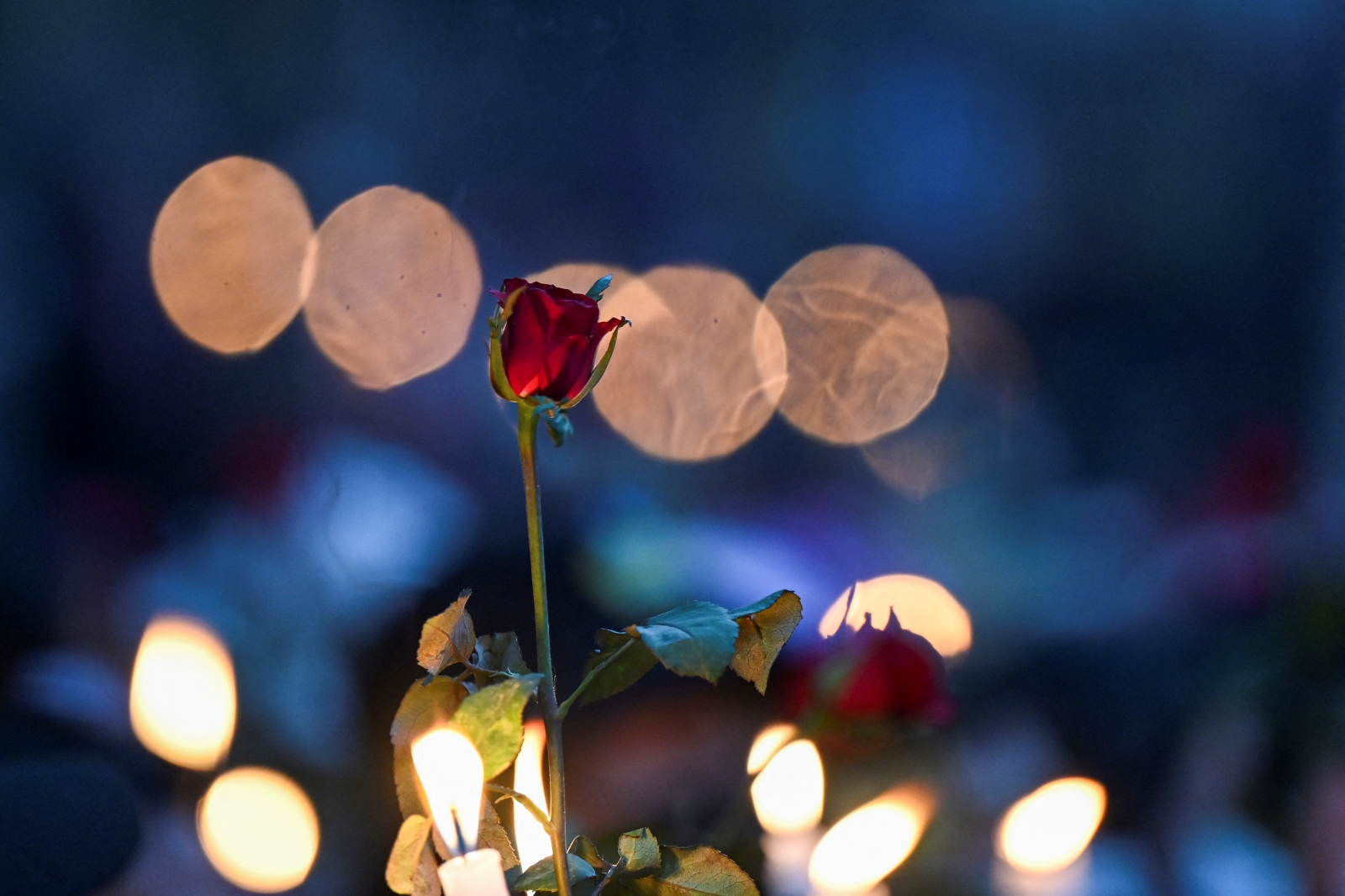Security forces are increasingly arresting the family members of activists who are on the run – effectively holding them hostage without charge.
By FRONTIER
Shortly after the February 1 coup, Ma Khaing Zin Thaw, better known as Ma Thaw Thaw, began to attend street protests and to advocate for democracy on her social media pages. Thaw Thaw is an online celebrity; her Facebook page, Thaw Thaw with Mom, has more than 100,000 likes and is known for short comedy videos she films with her mother.
Like many celebrities who publicly opposed the regime, the State Administration Council in April issued a warrant for her arrest under section 505-A of the Penal Code.
After the charges were announced, she left her home to avoid endangering her family. Although Thaw Thaw has managed to evade arrest so far, security forces raided her family home in Mandalay Region’s Mogok township on April 26 and detained her parents and her sister-in-law.
“Mum and dad have been detained for 75 days now. I never thought they would be arrested,” she told Frontier on July 9.
Thaw Thaw’s parents and sister-in-law are among dozens of family members of anti-military activists who have been detained in recent months, in an apparent effort to get regime opponents to hand themselves in. Many of those arrested have not been involved in the anti-coup movement.
The Assistance Association for Political Prisoners says 85 family members of those wanted by the junta have been arrested since February and 65 remain in detention. Many, despite being held for weeks or even months, have not had any charges filed against them.
“The military is arresting activists’ family members to take them hostage if they can’t find the people they want,” said Ko Kyaw Thiha, 21, an anti-military activist from the Mandalay General Strike Committee. He is also on the run, and when security forces couldn’t find him during a raid on his home, they arrested his father and three uncles.
“These are kidnappings,” he said.
The youngest political prisoner
Ko Soe Htay, a political activist based in Mogok, also had a 505-A case filed against him and fled his home to evade arrest in February. On June 15, he received a call from his wife, who explained police were still searching for him. It was the last time they would talk on the phone.
“She called to say that the police had searched my house for the fourth time,” Soe Htay said. “And she told me not to worry.”
An hour later, around 20 police officers and soldiers raided their home again, arresting Soe Htay’s wife, two daughters, and a neighbour who happened to be visiting at the time. The younger daughter, Hsu Htet Wine, was four at the time of her arrest and is the youngest person to have been arrested by the regime so far. She spent her fifth birthday in prison.
“First, they handcuffed my eldest daughter, a university student. After that my wife shouted, ‘Why are you handcuffing my daughter? She is not guilty,’” said Soe Htay. “They also took my five-year-old daughter.”
“My eldest daughter has rheumatoid arthritis. When they were arrested, they couldn’t take anything with them. All of the medicine was left behind at home. They could only take one piece of clothing,” he said.
Soe Htay has struggled to get information about his family since their arrest. Relatives who went to the police station were forced to leave and given no new information.
“No one was allowed to see them. We didn’t get any news about my family.” said Soe Htay.
Much of what Soe Htay now knows comes from Hsu Htet Wine, who was released on June 30, 15 days after being detained. Upon release, the little girl was taken to her father’s hiding place by neighbours, and was reportedly confused and traumatised. Her mother, Ma Kyi Kyi Khine, and older sister, Ma Theint Sandi Soe, remain in prison.
“On the first day, she didn’t speak with other people, and she was very sad. At night she asked about her mother and her sister,” said Soe Htay. “My child was released from prison. But her mind is not free yet.”

Torture under detention
Some of these “hostages” have reported being tortured while in detention.
Kyaw Thiha’s father was detained for three days at an interrogation centre, which are notorious for their harsh treatment of prisoners.
“They electrocuted my father. They beat him with a stick. They made him kneel down. They did not allow my father to take a bath,” Kyaw Thiha said. “After three days, they sent him back home.”
“My father was not involved in any political activities. He wasn’t involved in any anti-junta movement,” said Kyaw Thiha, adding that after receiving medical treatment, the family moved out of their homes and are now in hiding.
Ma Thazin Sanni, 23, was arrested in her father’s stead after security forces searched her home in Kungyangon township, in Yangon Region, on April 25 and were unable to find her father, U Sanni, a National League for Democracy member.
“At first they took Thazin Sanni to the township police station. We tried to negotiate her release with a police officer because our sister is innocent,” said a family member, who asked not to be identified.
The family was unable to secure her release, and Thazin Sanni was held at the Shwepyithar interrogation centre for 10 days.
“She was verbally threatened by soldiers. She was beaten with a stick by an army officer who asked where her father was,” said the family member angrily. “She did not commit any crime. It’s very unjust to be beaten during interrogation.”
In the first week of May, Thazin Sanni was transferred to Insein prison and charges were filed against her under section 505-A.
“We want her released immediately. She is not responsible for what her father did,” the family member said.
U Aung Myo Min, the minister for human rights in the parallel National Unity Government, said the regime was detaining family members in order to get dissidents to turn themselves in out of guilt.
“They do this thinking they will succeed. However, those who decided to fight for democracy didn’t return even after their families were arrested, so I can say that their efforts were unsuccessful,” said Aung Myo Min.
He said the NUG was reporting these human right abuses to the United Nations, including special rapporteur Mr Thomas Andrews.
Trying to control the movement with fear
The arrest and torture of family members is taking its toll on anti-military activists, however. With so many activists on the run, it also makes it much more difficult for them to coordinate anti-junta actions.
“If even one family member is involved in the anti-military dictatorship movement, the whole family risks arrest,” said Aung Win, a member of the University of Yangon Students’ Union who asked not to use his real name.
Student unions have been deeply involved in the anti-coup movement and their leaders a common target for regime forces. Min Han Htet, the president of the Dagon University’s Student Union, said his parents have had to shut down their family business and leave their home in order to avoid anyone being arrested in his place.
Kyaw Thiha says his 13-year-old brother was questioned by soldiers during the raid on his home and he had to watch his father being beaten before he was taken away.
“Security forces shouted and beat family members in front of the children. It scares the children and they are traumatised. Sometimes my brother is afraid when he hears the sound of cars,” said Kyaw Thiha. “It’s like the junta is saying: ‘If you revolt against us, your whole family will be harmed.’”
Activists interviewed by Frontier believe that even more family members will be detained in the coming days.
But Kyaw Thiha said it was important not to give into the junta’s tactics. “Under the military dictatorship, such incidents and other even more inhumane things will happen. Worse forms of oppression will happen to us. We need to be able to withstand this,” he said.
Soe Htay, the activist from Mogok, said the arrest of his wife and two daughters only strengthened his resolve to overthrow the military dictatorship.
“My family’s case is proof of how dangerous a military dictatorship is for our country,” he said. “So we must fight until the fall of the terrorist regime. We can’t give up.”







